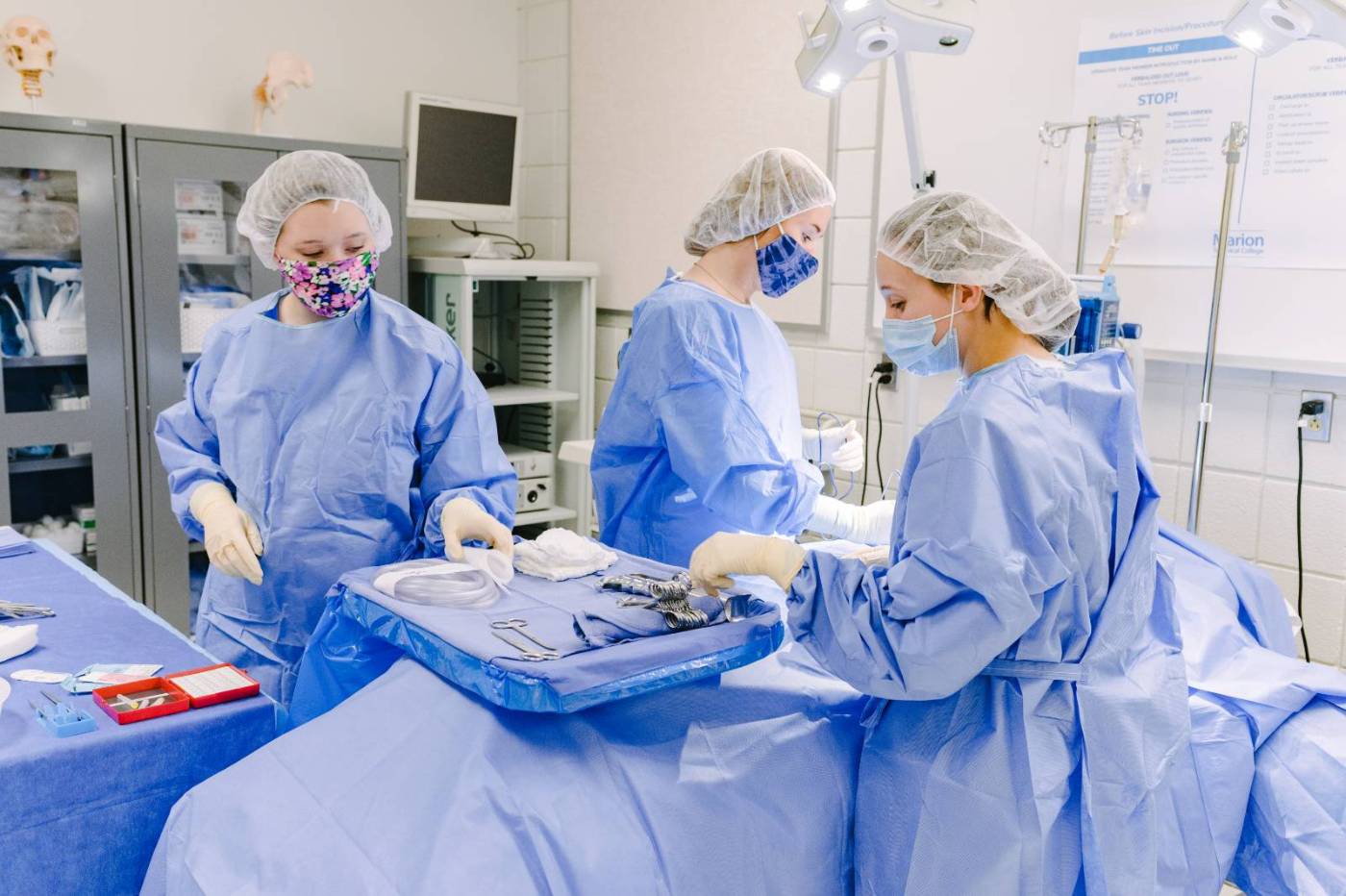Nurse Aide Training (STNA)
Overview
About the program
Nurse Assistant Certification (STNA) Preparation Training
This Nurse Aide Training (NUR1003) is designed to prepare students to sit for an external examination which would qualify them as an STNA. NUR1003, an equivalent training course, or an STNA certification is required for entry into the first nursing technical course (NUR1011).
This training also meets a market need and provides students an opportunity for gainful employment offering valuable experience.
Career Pathways:
Nursing (RN) Associate of Applied Science Degree
Certificate option
This Nurse Aide Training (NUR1003) is designed to prepare students to sit for an external examination which would qualify them as an STNA. NUR1003, an equivalent training course, or an STNA certification is required for entry into the first nursing technical course (NUR1011).
External Certification
Students will obtain a certificate of completion from the Ohio Department of Health upon successful completion of the NUR1003 (Nurse Assistant Certification Preparation Training) course. Successful completion of the course also makes students eligible to take the state examination for nurse aides. Passing the exam results in the State-Tested Nurse Aide (STNA) title and placement on the Ohio Nurse Aide Registry. Successful completion of the training and the nurse aide examination also makes students eligible for employment in the healthcare field as a nurse aide, home health aide, and direct service provider. The program includes classroom instruction, lab, and clinical (workplace) experiences. MTC is recognized by the State of Ohio as an approved agency for offering nurse aide training classes by meeting all minimum state and federal guidelines.
Learning Outcomes
- Identify the Ohio Department of Health requirements for State-Tested Nurse Aide (STNA).
- Describe the role of the nurse aide.
- Discuss aspects of communications important to nurse aides.
- Identify and implement infection control practices.
- Discuss safety and emergency precautions.
- Explain ways to promote residents’ independence.
- Identify the legal rights of the nursing home resident.
- Demonstrate basic nursing care and personal care skills at a satisfactory level.
- Discuss theory related to performing basic nursing care skills
- Identify the needs of an aging resident relating to mental health and social services.
- Recognize basic restorative services available to nursing home residents.
What Can I Expect?
This training course follows the guidelines set forth in the Omnibus Budget Reconciliation Act of 1987 and focuses on long-term care of the elderly population. Critical thinking situations are an integral part of each class discussion.
Students will be required to submit to a criminal background check at the onset of this course. The fee for this background check will be included in the cost of tuition. Individuals with a certain felony, misdemeanor, or drug-related arrests may not be eligible for course admission.
High School Students
The Nurse Assistant Certification Preparation Training course (NUR1003) is qualified for College Credit Plus funding. This is a great option for qualified high school students seeking hands-on experience in healthcare, college credit, and certification to work as an STNA. Additional materials not available in the campus bookstore. Please contact your high school for further information.
Application Requirements - Limited Enrollment
Marion Technical College (MTC) must meet state guidelines for attendance requirements, therefore students ARE REQUIRED to attend all classes and labs. Any missed hours of instruction must be made up hour for hour at an additional student cost of $25.00 per hour. Also, the NUR1003 course carries the following additional student expenses: TB skin test, uniform for clinical, and (if desired) state examination fee and cost of the textbooks, which vary.
3 semester hours. No course prerequisites.
- 15-week sessions: 2.5 hours lecture and 2.5 hours lab weekly, plus 20 additional clinical hours.
- Fast track sessions: 20 hours lecture and 20 hours lab weekly, plus 16 additional clinical hours.






